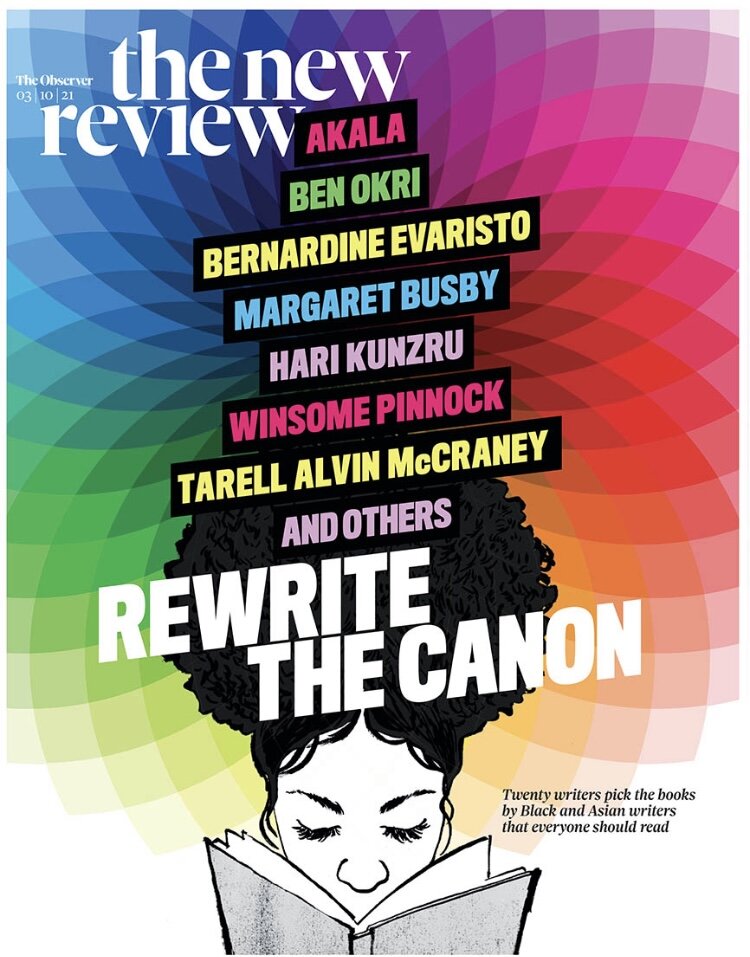The Observer
20 classic books by writers of colour


It wasn’t until I started university in 2008 that I truly realised how little regard there was for Black authors. My creative writing lecturer was a Black poet, whose teaching material and reading lists were saturated with authors of colour, but each term, I noticed that the class was shrinking. One day, there was a discourse bubbling among my white peers; they deemed him too biased, and proclaimed that his reading list was too Black. He’d been suggesting interesting works such as Ishmael Reed’s Juice! and Clarence Major’s Painted Turtle: Woman With Guitar, but students banged their fists on the table for more Plath, more Twain, more Orwell.
A 2017 report showed that of 400 authors named as writers of literature by 2,000 people, only 7% were from Black, Asian or minority ethnic backgrounds. Sunny Singh, co-founder of the Jhalak prize, which recognises Black and Asian writers in Britain, said the list reflected “a deeply entrenched imaginative conservatism, where the need to hold on to a nostalgic past combines with a fear of confronting a complex present in all its variety”.
I was fortunate in that my mother worked as a stock manager for a small publishing house specialising in Caribbean, Black British and South Asian writing called Peepal Tree Press. Books by Courttia Newland, Jacqueline Bishop and Kwame Dawes were regular birthday gifts, but such authors have remained largely absent from discussions about great works of literature.
Still, we owe a lot to literary greats such as Toni Morrison and Margaret Busby, whose presence helped to destabilise the homogeneity of the canon. During Morrison’s tenure as an editor at Random House, from 1967 to 1983, the company published 26 books by Black authors. These included Gayl Jones’s Corregidora and Angela Davis’s autobiography. But once she had left the company, only two books by Black authors were published between 1984 and 1990. Busby, Britain’s first Black female publisher, brought works by Guyanese author Roy Heath and Trinidadian historian CLR James into circulation. You’d think all of that labour might have caused a seismic shift in publishing, but as Busby mentioned in a 2020 interview: “I can still go to literary parties where I’m the only Black person.”
In recent years, we have seen the republishing of out-of-print books such as Beryl Gilroy’s Black Teacher, a book I deeply enjoyed and believe is necessary reading more than 40 years later. Penguin Classics republished works by Asian American authors such as The Hanging on Union Square by HT Tsiang and East Goes West by Younghill Kang, while Bernardine Evaristo has chosen a series of neglected novels by Black British writers to be republished by Penguin.
But it isn’t only vintage works we should consider as we think about widening the canon. Some books published in the past decade are worth revisiting too. One such is Long Division by Kiese Laymon, a 2013 novel, revised and republished in 2021, about a boy who travels through time to stop the Ku Klux Klan from killing his grandfather. “Between 2001 and 2010, I was rejected by nearly every agent and publisher in NYC,” tweeted Laymon when the revised edition was published. “They imagined no readership for my work generally and specifically no readership for a meta-fictive book about the ways Black children in Mississippi creatively grieve across generations. They were wrong.” Another overlooked novel, also from 2013, is Seduce by the Sheffield-based writer Desiree Reynolds. Set at a funeral on the fictional Church Island in the Caribbean and written primarily in patois, it’s a hurricane of a book that pulsates with love, sex, shame, class and religion.
The books on this list, recommended by some of the greatest voices in literature today, are a heartfelt collection of works that ought to be historised. From Heart of the Race, a socio-historical study of the lives of Black British women by Beverley Bryan, Stella Dadzie and Suzanne Scafe, to A Visitation of Spirits, a novel about a gay Black teenager struggling with religion by Randall Kenan, these books deserve to be considered, critiqued, dramatised, reimagined and conserved like other classic texts.